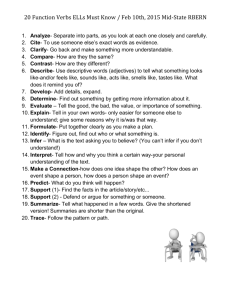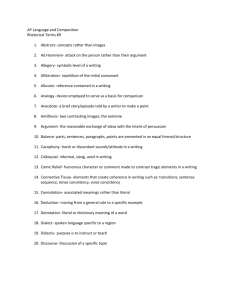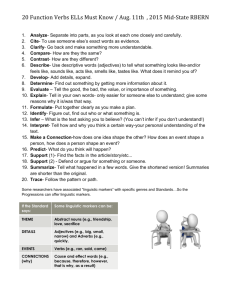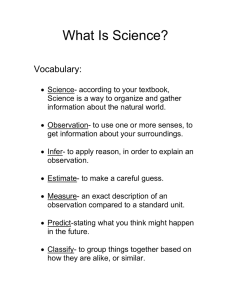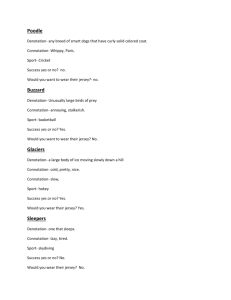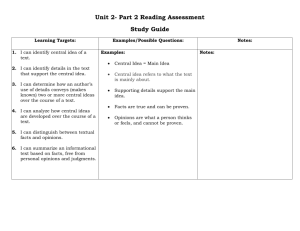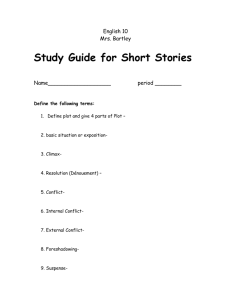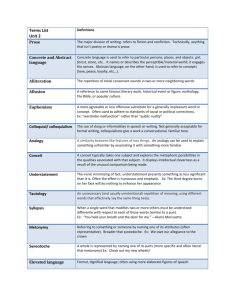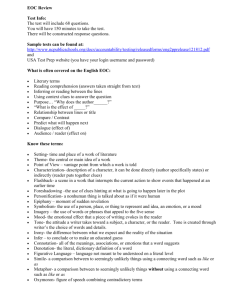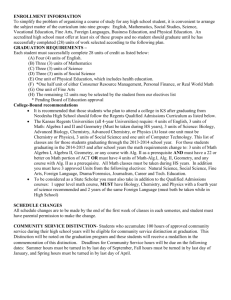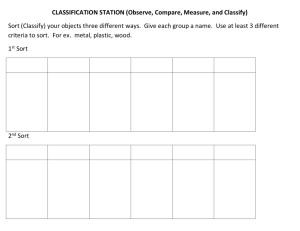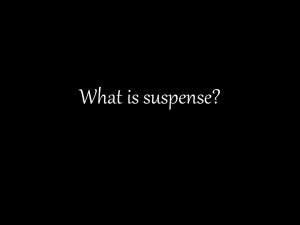vocab
advertisement
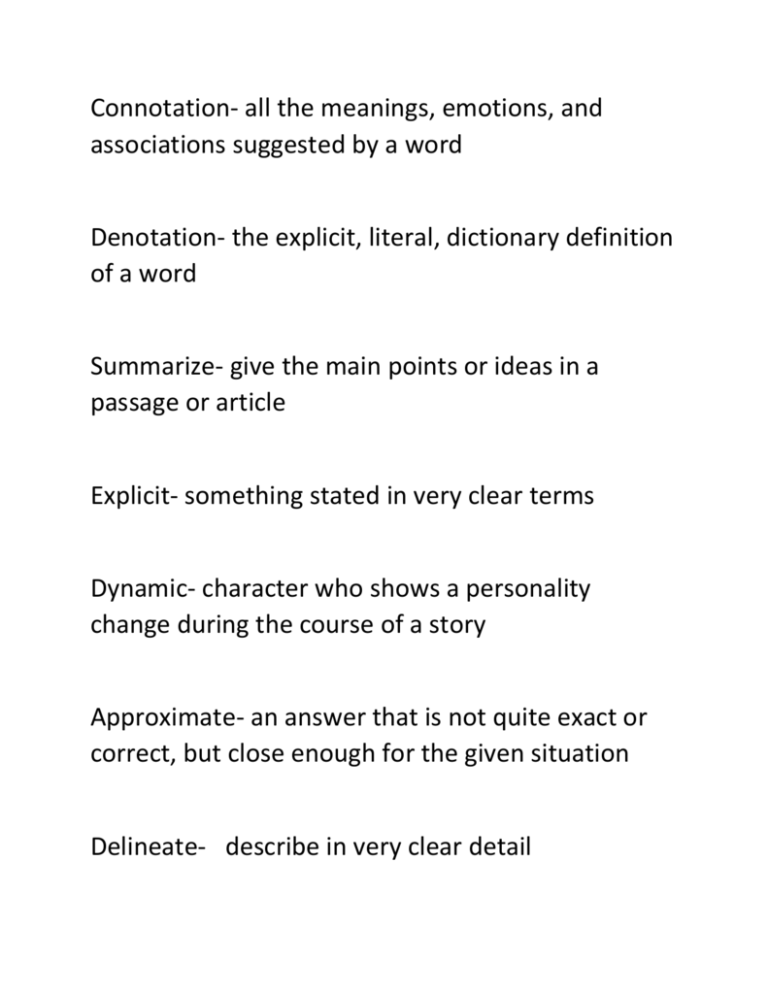
Connotation- all the meanings, emotions, and associations suggested by a word Denotation- the explicit, literal, dictionary definition of a word Summarize- give the main points or ideas in a passage or article Explicit- something stated in very clear terms Dynamic- character who shows a personality change during the course of a story Approximate- an answer that is not quite exact or correct, but close enough for the given situation Delineate- describe in very clear detail Corroboration- confirmation that some fact or statement is true Apply- to put to some practical or specific use Bias- to influence in an unfair way Conclusion- a statement that tells the outcome of an investigation; the data has been interpreted and studied in relation to a hypothesis Construct- put together out of components or parts Constraints- something that would hold you back Refine- to make improvements by introducing subtle changes Function- the special purpose something is used for Cite- make reference to Critique- to give your opinion about something (ie poem, art, music, movies) Evaluate- place a value on; judge the worth of something Distinction- a notice or marking of the differences between things Fundamental- a basic principle or necessary part Determine- reach, make, or come to a decision about something Assess- to analyze and determine the nature, value, or importance of Diversity- the condition of having variety Variable- a quantity that can assume any of a set of values Justify- show to be reasonable Distinguish- to mark with a trait that makes something different Predict- to be able to tell about an event before it occurs Synthesize- to come up with a new idea that is based on given information Hypothesize- suggest an answer to a problem. Your answer is based on information that you know Logical- clear; reasonable; step by step thinking Analyze- make a mathematical, chemical, or grammatical analysis of; break down into components or essential features Reliable- able to be counted on, dependable Inference- an educated guess about something that is not directly stated in a passage but is strongly hinted at or implied Validity- state of being supported by facts Reference- to cite specific information from a poem or story to support a viewpoint Scarcity- a small and inadequate amount Cohesion- the state of sticking together or to become bonded Attributes- specific characteristics Interpret- to show one’s own understanding of something and make clear to others Diffusion- spreading out from a crowded to a less crowded area Significance- a meaning or sense of importance Identify- label, classify, describe, determinate Elaborate- add details, as to an account or idea; clarify the meaning of and discourse in a learned way, usually in writing Adaptation- adjust to and use what’s in your environment in order to survive Context- the setting in which a word appears that may help the reader understand the meaning of the word Transition- the process of changing or passing from one form, state, subject, or place to another Differentiate- distinguish, tell apart and recognize differences between two or more items Abstract- a concept or idea not associated with any specific instance Classify- to group things according to similar characteristics Reaction- (chemistry) a process in which one or more substances are changed into others
